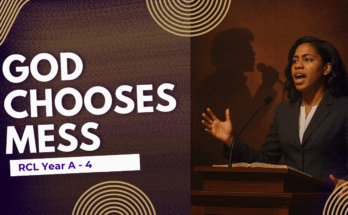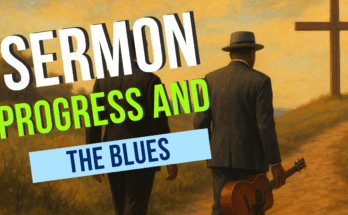As an Amazon Associate I earn from qualifying purchases.
Closing The Sermon With Power
Chapter 6: Reduce Complexity
OK, you have become the actor in the sermon. What else can you do to help your delivery of your sermonic. close? The next important thing you should do is Reduce complexity.
Do not engage in caveats or explanations of your points in the celebration. You have already done all that in the sermon. If you have put your sermont together properly then you can
eliminate your caveats and explanations.
What am I talking about?

Sometimes, you may even introduce objections that you will address in the sermon. How many times have you heard a preacher say, “Well, what are you talking about, preacha?”
Then after that introduction they go deeper into the point. The preacher may introduce some questions that they know are in the minds of the hearers.
There usually are some obvious objections to any of your points. You should at least address some of these obvious objections when you present a point.
However, when you reach the celebrative close, you should have
answered all your major objections. And so now, you don’t deal with the explanations.
To repeat, you have already taught the message, now it is time to celebrate the truth of what you have already presented in the
message.
Here is an example:
Let’s assume that your point is about God always blessing humanity. During the sermon, you may need to need to do some description.
You are going to have to define what a blessing is and what it is not. You may have to use the scripture to widen our perception of blessing, especially in this day and age when some individuals believe that God’s blessing is only monetary benefits.
You may have to put a caveat in there that says that God’s blessing is true even if you don’t get the new car, even if you don’t get the new house, even if you lose your job. God’s blessing is not dependent on a blessing we see.
However, when you get to the celebrative close, you are finished teaching. You are finished deeply going into telling and defining what a blessing is. Now it is time to just celebrate the fact that God always blesses humanity.
To repeat, the caveats are complete and the explanations are done. The intellectual component of the sermon is over, don’t introduce anything new that will need to be processed. No, just celebrate the truth that you already presented.
Note that the celebrative close comes and drives home the intellectual truth. And so now, you are experiencing the truth in the celebrative close. It is not through the intellect, but it is dependent on the intellect. It is not just with your intellect, but in your emotive dimension.
But because both aspects of your being are dealt with, then you
are much more likely to hold on to the truth. Frank Thomas
said, “We don’t remember what we don’t celebrate.” So
celebration is an important component to solidify what we have
just presented.
So remember in your sermon to answer the objections in such a way that there is nothing to stand in the way of celebration of the truth that you have presented. Don’t introduce any more explanations, just celebrate. And that celebration will drive home the truth in a powerful way.
If this article, and or site has been helpful to you, please consider becoming a monthly supporter on Patreon or leaving a one time tip of any amount from $1 on up.
Amazon and the Amazon logo are trademarks of Amazon.com, Inc, or its affiliates.









